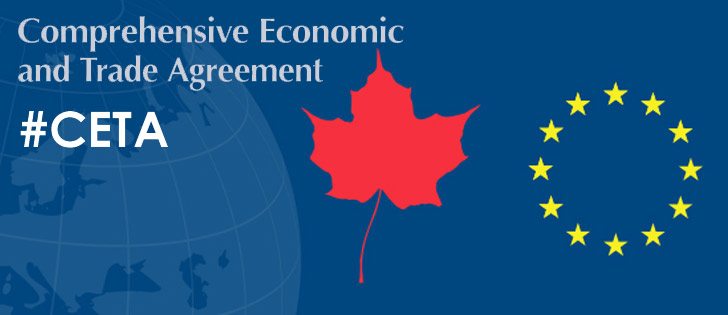When the Canadian government was selling the free trade deal with the European Union to the public, it repeatedly mentioned one of the benefits being the elimination of duties on wheat and durum.
It said the Comprehensive Economic and Trade Agreement (CETA) would wipe out tariffs of up to $122 per tonne on wheat and up to $190 per tonne on durum.
What the government failed to mention is that those tariffs were not being applied on durum and high quality wheat; just low to medium quality wheat.
Read Also

Critical growing season is ahead for soybeans
What the weather turns out to be in the United States is going to have a significant impact on Canadian producers’ prices
So growers shouldn’t expect a big uptick in sales to the EU now that CETA is in force.
However, it is still a relief that the tariffs will be completely eliminated over the next seven years, said Cam Dahl, president of Cereals Canada.
That is because the EU could implement the tariffs at any time if the market price of wheat becomes out of whack with the EU’s inter-vention price.
“We’ve seen that recently happen in Japan in beef where we had that snap-back tariff come in place on Canadian beef and significantly reduce our access to Japan,” said Dahl.
Japan hiked the tariff on frozen beef imports from Canada and other countries in July to 50 percent from 38.5 percent. Australia and Mexico avoided the tariff because they have free trade agreements with Japan.
Europe is not a big customer for Canadian wheat, accounting for about three percent of total exports with most of that going to the United Kingdom, which is exiting the European Union.
However, Italy was the top buyer of Canadian durum last year, consuming one-quarter of total exports.
Dahl said it is important to remove all barriers to trade, but CETA does not adequately deal with non-tariff barriers.
“We’re seeing these non-tariff trade barriers rise up in Europe,” he said.
For instance, France recently said it would vote against the European Commission’s proposal to extend the license for glyphosate by 10 years.
Reuters reports that failure to renew the license by the end of the year would result in an automatic ban on the chemical starting Jan. 1, 2018.
Dahl worries that could lead to the EU establishing a zero tolerance level for glyphosate residue on crop shipments.
“Of course that would be a massive trade barrier for Canada.”
Dahl is also concerned with Italy’s recent announcement that it will be imposing country-of-origin-labelling on packaged pasta in early 2018.
The labelling rules will require manufacturers to list the origin of the grain used in their pasta and where it was milled.
Dahl said that type of barrier to trade is often worse than tariffs.
“It could significantly erode any potential benefits of CETA.”


















